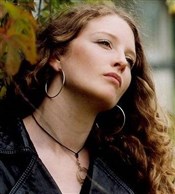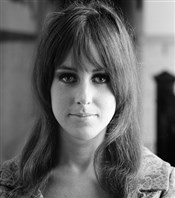
BY HASAN MURAT SÜMER (EE/IV)
hasan.sumer@ug.bilkent.edu.tr
For some reason, having a female lead vocalist is by default a big plus for a band. I intuitively feel the same way, even though female singers are not necessarily better than male singers in general. The reason is probably the scarcity of women in band lineups; the less of something there is, the more valuable it is. Here, I’ll write about some of my favorite female vocalists.
Annie Haslam is technically the strongest name in this column, with her five-octave vocal range. Although her solo discography is pretty large, she is best known as the lead vocalist of Renaissance. Normally, prog rock bands employ elements from other genres, such as folk, jazz and classical music. But they keep the essence of rock music uncorrupted enough to call  themselves “rock bands.” Renaissance seems to be doing the exact opposite by being a classical music band that employs some elements from rock and folk. Annie has some classical training in singing; this is a good match with the band’s style, considering the fact that their music is driven primarily by the piano, with lots of orchestral background. Her vocals don’t blend with the instruments like those of some other singers; in fact, the non-instrumental parts of the band’s music seem insignificant because her voice dominates everything else. The Renaissance album “Ashes Are Burning” (1973), in particular, relies heavily on Annie’s vocals; therefore, it’s a great choice to give you a taste of her sound. Also, check out her live shows on YouTube; her performance is angelic.
themselves “rock bands.” Renaissance seems to be doing the exact opposite by being a classical music band that employs some elements from rock and folk. Annie has some classical training in singing; this is a good match with the band’s style, considering the fact that their music is driven primarily by the piano, with lots of orchestral background. Her vocals don’t blend with the instruments like those of some other singers; in fact, the non-instrumental parts of the band’s music seem insignificant because her voice dominates everything else. The Renaissance album “Ashes Are Burning” (1973), in particular, relies heavily on Annie’s vocals; therefore, it’s a great choice to give you a taste of her sound. Also, check out her live shows on YouTube; her performance is angelic.
Heather Findlay has one of the finest sounds in folk rock. She’s also pretty good with the guitar, so it’s not clear whether she’s a singer or an instrumentalist first. She has a small solo discography and some guest appearances with well-regarded artists. But her most important contribution to music was her work with the band Mostly Autumn until she left it in 2010. Heather is one of those singers who manipulates the mood of her voice so well, she can easily make you cry if you already feel low. Due to the folky nature of the band, we often hear her singing in a calm rather than an excited manner. But no matter how she sings, there is a peaceful, soft  and luscious character to her sound. “The Spirit of the Autumn Past” (1999) is a solid album by Mostly Autumn, with great presentations of Heather’s talents. I especially recommend the album’s closer, “The Gap Is Too Wide,” because it’s a shining moment not only for Heather, but for the whole band.
and luscious character to her sound. “The Spirit of the Autumn Past” (1999) is a solid album by Mostly Autumn, with great presentations of Heather’s talents. I especially recommend the album’s closer, “The Gap Is Too Wide,” because it’s a shining moment not only for Heather, but for the whole band.
Jefferson Airplane is famous for being everybody’s favorite psychedelic rock band, and Grace Slick is famous for being the band’s vocalist. She wasn’t there from the beginning, so one can see that the band was talented enough to gain recognition without her. However, one can also see that Slick’s recruitment was the huge plus that carried them to greater success, not only with her singing, but also with her keyboard skills and songwriting. (Jefferson Airplane’s two most famous songs were written by her and her brother-in-law.) She was an aggressive woman who sometimes projected this aggression to songs whose lyrics are in a storytelling format. I find this a little unpleasing, but the same aggression creates a smooth and very strong timbre in her inarticulate vocals. It feels extremely delicious to hear her sing in a high range without lyrics. Her solo work has remained more in the shadows, but I recently discovered the album “Dreams” (1980), which deserves more attention. The gem on the album, “Garden Of Man,” is a perfect demonstration of her vocal skills, with varying moods and loud, high-pitched singing in the choruses. The six-minute song builds up to an ending in which Slick just shows off; I can’t find a word to describe it. It’s an absolute recommendation of mine.
